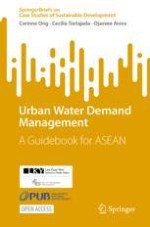This open access book highlights knowledge and expertise in Urban Water Demand Management (WDM) in ASEAN through comprehensive literature review and analysis, as well as stakeholder consultations. It documents urban WDM policies, initiatives, and practices that have demonstrated effective implementation outcomes across various contexts and which are expected to be relevant for cities in ASEAN. A WDM typology developed for this book identifies four key WDM measures, namely: water losses, economic instruments, non-price mechanisms, and alternative water reuse systems in the ASEAN context. Case illustrations of their effective implementation in different ASEAN cities are also included.
